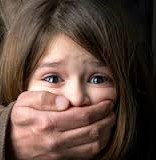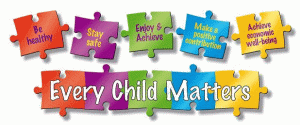Most strictly speaking, anosognosia is the individual’s ongoing lack of awareness of or insight into, a medically diagnosed condition they have, due to damage to the brain, a variety of anatomical structures are involved, especially the anterior insula, anterior cingulate cortex, medial frontal cortex, and inferior parietal cortex. It is insufficient to simply be in psychological denial, for it to be termed anosognosia, but anosognosia is present in people with not only neurological injury e.g. from an accident, but also in people with mental illnesses such as schizophrenia and bipolar disorder. This means, that the brain differences in those conditions, are damage to the normal functioning of the brain. Sometimes, the term anosognosia is used to describe denial of the diagnosis too. I think this should be the case when the level of denial is so absolute, that the individual cannot move past it.
There is however, a dearth of literature on anosognosia in autistics. Autism is genetically related to schizophrenia (as well as bipolar) and some autistics have co-morbid schizophrenia. So it stands to reason the the brain differences in autistics can be such, that they could also cause, or contribute, to anosognosia about their autism. Some autistics may simply deny their condition because they are newly diagnosed adolescents who are embarrassed about being seen as different than peers, or a late diagnosed adult who is struggling with the shock of re-evaluating their whole life through a new lens, or the individual may have co-morbid anxiety which makes them too scared to deal with it. That’s not actual anosognosia though, time usually resolves this reaction.
Autistics can, not uncommonly, suffer with alexithymia, the difficulty in recognising emotions and the reasons for them. I believe this can contribute to anosognosia. My eldest autistic child seems to have true anosognosia. Since being diagnosed with autism over 2½ years ago, she has steadfastly refused to accept her diagnosis. And I tried selling all the positives, pointing out celebrities and historical figures known to be, or believed to have been, autistic and talking about the talents and abilities it conferred on her. She was diagnosed late, at age 12, due to professional failures in recognising high-functioning female autistic presentation, but that’s a whole other story. I thought it was fear and being an adolescent that made her refuse to believe it. But over time, I have come to realise that it’s more than that. When she was assessed, she completed self-report questionnaires and selected all the answers that highlighted her as having no problems whatsoever, for personal traits and difficulties. Everything she was struggling with in school and elsewhere, she attributed to being the fault of others.
She struggled socially, but that was because everyone was “mean”, not because she was emotionally and developmentally behind her peers and couldn’t converse about the same things they did, or because she struggled with reciprocal conversation. When the teacher’s voice was too loud for her, it was the teacher “booming”, not because she had sensory issues. She described herself as very helpful, when for example, she has sat many a time, watching me struggling back and forth past her loaded with heavy shopping bags and never once offered to help. When she wet herself several times in school, it was because she was laughing too much, not because she was so anxious and overwhelmed that she was unable to listen to her body and recognise that she had a full bladder in the first place, or had difficulty speaking up. When she is constantly unable to manage basic daily minutiae without asking for guidance, it’s because I’ve brought her up to be helpless. It’s very hard parenting a child who thinks this way.
Even her school, who were trying to deny there were any problems, whilst she was suffering an emotional breakdown failing to cope there, scored her as having difficulties in various areas that she didn’t admit to. She couldn’t cope with the demands at secondary level, the adult content of the lessons – which was shocking and traumatic, to her developmentally delayed brain – it was like dumping a little 8 year old in high school and expecting them to cope. She would come home from school and download at length, a monologue of her daily school stresses, pacing in a circle, followed by breaking down sobbing and having meltdowns, where she would bang her head repeatedly on the floor and pick her skin until it bled – but that was because the school was “horrible” and people were “mean”. Her inability to cope in school and the effect it had on her, resulted her being diagnosed with co-morbid anxiety and depression. She changed schools, but the same thing happened, so she clearly couldn’t cope in mainstream and then school-refused, she has been off now for 18 months. Yet she is a very intelligent child, academically excellent with a very superior vocabulary.
So over time, I realised that her denial, is beyond being mere denial. It’s a literal belief that she really isn’t autistic, an inability to believe it. Never mind that she has an autistic sibling and parent, so genetically there is something going on, it still couldn’t possibly be her. I thought time would make her come to terms with it, but it hasn’t. If any support offered has been autism-related, she refused it. She has refused social opportunities that would help expand her horizons, yet is upset at having no social life. As I see signs of alexithymia and very low empathy in her, I believe there is a part of her brain that doesn’t see herself as she really is. She is confident in some ways, but has a poor-self image at times and will tell me she’s “weird” or “a freak”, which to me are far worse terms than ‘autistic’. She misunderstands people a lot, she thinks people have been mean all the time. She externalises her difficulties to such a fervent degree, that the only conclusion is anosognosia.
But this worries me. Quite a lot. Her social misunderstanding, naivety and vulnerability mean she does not have the ability to be as independent in the way she imagines she should be. Her life dreams revolve around fictitious cartoon characters, that ‘autistic living in a fantasy world‘ described by Tony Attwood. Questions she has asked me, such as why a man would want to abduct a child, coupled with her inability to cope with learning “bad stuff” that would allow her to understand why, means she is stuck in a no-man’s-land of semi-reality. Her inability to cope when unexpected problems arise, to overreact to phobias she has when outside, her hyper-reactivity and general tendency to panic, all leave her vulnerable. She flatly denies particular difficulties she has and will only admit to something if she believes it isn’t related to autism (she doesn’t know difficulty speaking up and asking for help is a trait common in autism so she’ll admit to that!). She has an EHCP because of her difficulties, but asks why she should have one when the other children don’t.
At the age she is now, she will all-too-soon, be considered to have rights, independence and responsibilities that would only be denied/managed on her behalf, if she was deemed to lack capacity. Because of her high IQ, she would likely to be considered to have capacity, because she would be able to intellectually answer questions that would make it appear so. And her superior vocabulary, alongside her serious and passive manner with strangers, makes her seem mature, but they can’t see what’s going on inside. They wouldn’t realise that her understanding of consequences, potential scenarios, awareness of an adequate range of manifestation of danger, lag far behind. She knows you aren’t supposed to talk to strangers, but she isn’t street-wise, she misunderstands people, she’s innocent and gullible, she panics at the unexpected. Many autistics can answer questions about dangers and risks based on logic, but there is a mismatch between that logic and an ability to be able to apply it in real life, in real-time. High-functioning autistic females can also be masters of camouflage and masking. And parents are elbowed out of the picture sharpish when children reach a certain age. She has actually said to me that as soon as she is an adult she will have herself “undiagnosed”. So what happens when a child refuses to accept their difficulties, denies there is any problem and makes a superficially convincing show of it? What happens when a parent knows that this puts them in a really vulnerable and potentially at risk position? Professionals will put the rights of the child above the parent’s knowledge of their child and ignore the parent – especially when it conveniently means they can avoid providing resources. What happens with in situations such as DLA/PIP interviews, if they arise? She will deny any difficulties and likely lose her DLA.
So I asked myself, do I get a professional to state on record that she has anosognosia? Trying to foresee the implications of that causes new concerns. On the one hand, it will be officially recognised and is evidence for any of the above scenarios that might arise, on the other, what if it followed her to adulthood and caused her problems? What if she became a parent one day and professionals deemed her (rightly or wrongly) as having parenting deficits and lacking insight into them and unable to change? Knowing the parent-blame culture that exists now and the tragedies occurring to autism families misjudged by social services, it could happen. It’s a scary prospect. And if she became a parent, there is a significant chance she’d have an autistic child, what if she refused to recognise autism in her own child and seek help for them? There are so many potential issues with this.
I believe there needs to be focused research on anosognosia in autistics, there needs to be a way to reach someone with this, to help them understand their neurology and be at peace with it. Autism is an integral part of who someone is, you can’t separate it out. If someone needs help, it’s important that they recognise that and accept help from others. How can someone grow and problem-solve in their life if they don’t understand themselves? We all need to recognise our weaknesses as well as our strengths, not to allow them to hold us back, but to work with what we’ve got and make the best of it. And there needs to be recognition in the professional world, that a high-functioning autistic, no matter how high their IQ, cannot be deemed to have full capacity, if they do not have the capacity to recognise their own difficulties and the parental knowledge of the individual must not be dismissed.
![]() If anyone has ever appreciated any of my blog posts please consider voting for me here: http://the-art-of-autism.com/vote-for-your-favorite-female-autistic-blogger-for-2017/. I’ve never been nominated for a bloggers award before!
If anyone has ever appreciated any of my blog posts please consider voting for me here: http://the-art-of-autism.com/vote-for-your-favorite-female-autistic-blogger-for-2017/. I’ve never been nominated for a bloggers award before! Most people are expert at something – even if it’s something negative! Autism diagnosticians such as psychologists and psychiatrists, are, purportedly, the experts in assessing and diagnosing children for autism.
Most people are expert at something – even if it’s something negative! Autism diagnosticians such as psychologists and psychiatrists, are, purportedly, the experts in assessing and diagnosing children for autism.

 Ego is a funny thing. It makes people proud and vain at one end of the scale or insecure and paranoid at the other. It isn’t therefore, necessarily a good thing to possess. But most people have one, unless they have learned to master it and let such burdens go. The male ego is something that is famously guarded, it’s something females are not supposed to dent. A man must not feel his “masculinity” is under question. Machismo, manliness, masculinity…no matter how well hidden it is, in a metro man, a nerd or a hippy, they all have male pride…an ego.
Ego is a funny thing. It makes people proud and vain at one end of the scale or insecure and paranoid at the other. It isn’t therefore, necessarily a good thing to possess. But most people have one, unless they have learned to master it and let such burdens go. The male ego is something that is famously guarded, it’s something females are not supposed to dent. A man must not feel his “masculinity” is under question. Machismo, manliness, masculinity…no matter how well hidden it is, in a metro man, a nerd or a hippy, they all have male pride…an ego.


 What can be done, about the utterly shocking situation of decent
What can be done, about the utterly shocking situation of decent 










